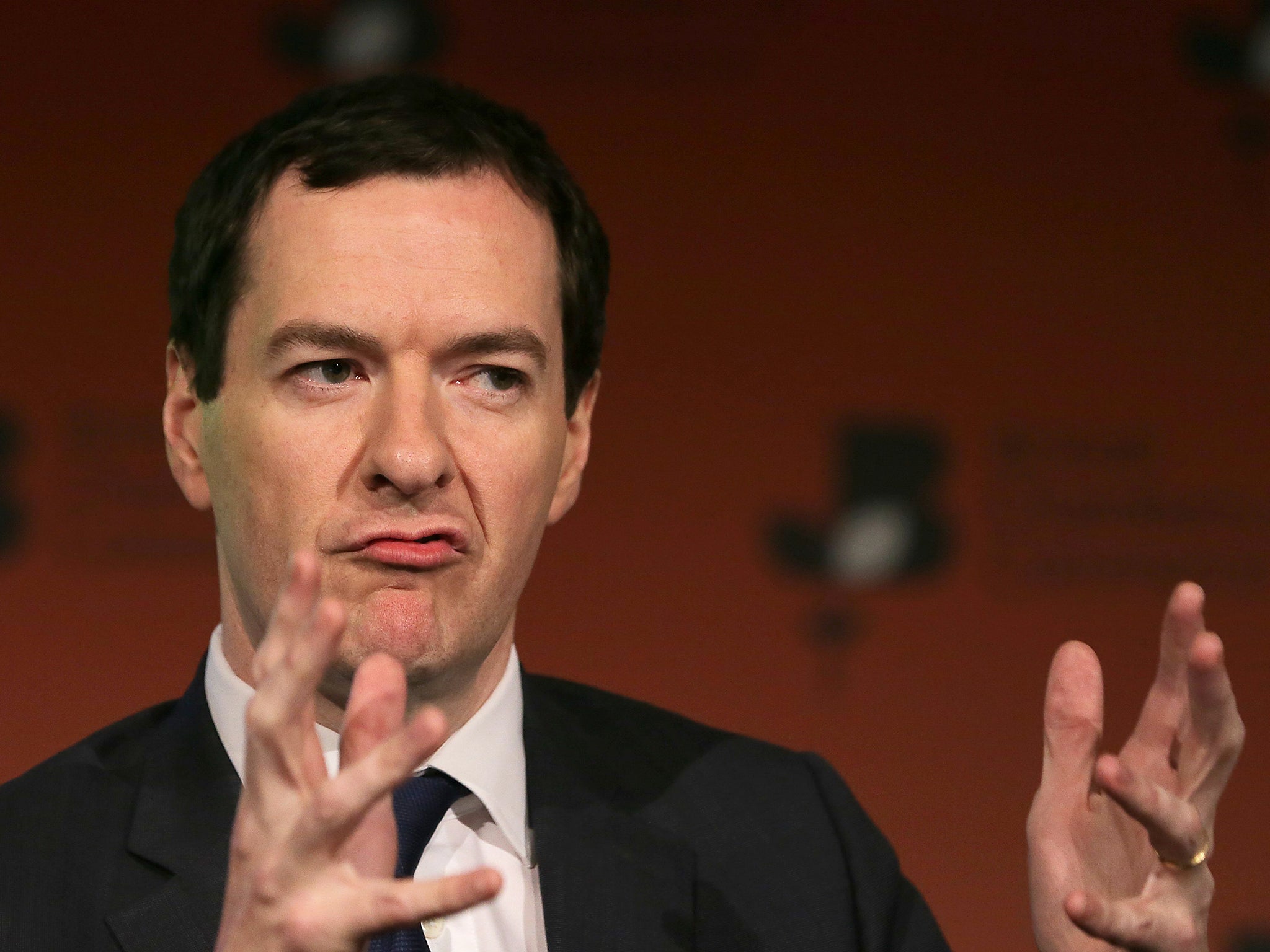Leaving single market may be 'biggest act of protectionism in history’, George Osborne warns
Former Chancellor says trade deals with other countries would not suffice

Withdrawing from the single market without a trade deal would be “the biggest single act of protectionism in the history of the United Kingdom”, George Osborne has warned.
In a forthright attack on the Prime Minster, the former Chancellor said making trade deals with other countries around the world would not make up for the loss of trade caused by a hard Brexit that saw Britain slide out of the trade bloc.
Theresa May said in a speech at the start of the year that Britain “cannot possibly” remain in the single market after Brexit and that staying in “would not mean leaving the EU at all”. She has since said that if MPs reject her Brexit deal Britain will crash out of the bloc with no special provisions.
But on Tuesday Mr Osborne put himself on a collision course with the Prime Minister, telling the British Chambers of Commerce’s annual conference in Westminster: “Let’s make sure that we go on doing trade with our biggest export market, otherwise withdrawing from the single market would be the biggest single act of protectionism in the history of United Kingdom and no amount of trade deals with New Zealand are going to replace the amount of trade we do with our European neighbours.”
Mr Osborne said that Britain had taken the decision to leave the European Union and that it would do so. However, he said that the “devil’s going to be in the details” and that a number of questions about trade policy and immigration had been left unanswered.
“There were a whole set of other questions that we were not asked” at the referendum, he said.
“The country has answered a question, which is do we want to leave the EU or not? They answered ‘yes we do’, and we’re leaving the European Union. In my view, that decision has been taken.
“There were a whole set of other questions that we were not asked – what do you want your immigration policy to look like, what do you want your trade policy to look like, what do you want your business policy to look like? They are now before us as a country and we’re going to have to make decisions on them. That’s where the devil’s going to be in the details.

“Take immigration – do you want to have access to a skilled workforce around the world that wants to come and work in Britain, do you, as David Davis was saying the other day, want to have people who are maybe not so highly skilled coming to fill gaps in agriculture or catering and the like? That’s going to be the immigration decision we’ve got to take.
“Do you want to go on paying farming subsidies paid for by other taxpayers, do you want to make sure industry competes in a fair and free market or are you going to allow secretaries of states to make decisions to support individual companies and is that a good thing? There are a whole range of questions and my sense is that there’s quite a lot of fighting the last war – fighting the referendum campaign that’s taken place where there was a clear decision.
“Now we need to have the debate about immigration, where I think it’s important that we have access to skilled immigration from around the world and we’re a magnet for talent.
“It’s important our universities continue to attract students from abroad – indeed the Government boasts that one in seven of all the world leaders were educated in Britain at some point. Well great, let’s make [sure] that continues to be the case.”
The Government has said it wants to impose immigration controls between the UK and European Union but has not specified what they might be.
Join our commenting forum
Join thought-provoking conversations, follow other Independent readers and see their replies
Comments
Bookmark popover
Removed from bookmarks